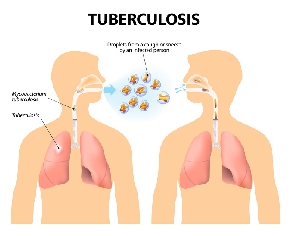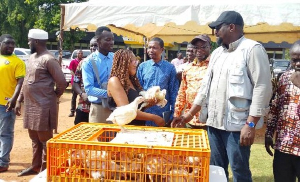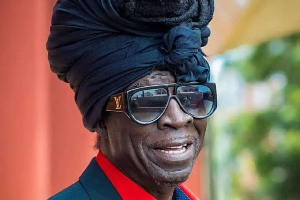The Stop TB Partnership in Ghana has held its sixth Annual General Meeting (AGM) in Accra to take stock of activities and chart new paths for addressing present challenges of finding new Tuberculosis (TB) cases.
Mr David Kwasi Afreh, the Board Chairperson Stop TB Partnership in Ghana, commended the other Board members for their diverse expertise that contributed to various successes within the year.
He said the Stop TB Partnership, which is a national umbrella, comprised of Civil Society Organisations, Private and Public Sectors, Research and Academia and individuals, is the Implementing Partners (IPs) of the TB Control Programme, with support from the Global Fund.
The Partnership, he said, was currently working to prevent and control TB and other lung diseases and to provide care and support to Persons Living with HIV (PLHIV) in Ghana.
Mr Afreh said several gains were made and cited the increase in the number of Non-Governmental Organisations (NGOs) implementing the Stop TB programmes across communities and finding the missing cases under one constituency from 45 to 90.
He also spoke about the fact that the Stop TB Partnership currently had its own well-furnished office and staff working in a conducive environment.
The Partnership has established a sound accounting department and also created a Monitoring and Evaluation department for tracking, data collection among others, to shape responses.
The Partnership, he said, also provided capacity building for some NGOs, and it was hoped that giving them better resources, they would work differently.
Dr Yaw Adusi-Poku, Programme Manager, the National TB Programme, said although the COVID-19 pandemic led to an increase in the workload, NGO’s contributions increased in the second quarter and third quarters of the year in terms of case finding and funding.
He said in terms of its case-finding strategies, the use of the GeneXpert had been made the first line of TB diagnostic test since 2017, however, because the limited number of these machines, some 1,000 health facilities across the region had been selected for sputum sample transport.
This means that sputum samples collected by NGOs were sent to these facilities for onward transmission to the GeneXpert facility for diagnosis.
He also said there had also been an increased in TB screening in mining communities and intensified engagement between CSOs and the private sector.
Dr Adusi-Poku, touching on the TB treatment approach said: “we are still practising community DOTS, and other treatment enablers to prevent drug resistance and other complications.”
He explained that currently the use of injections for the treatment of TB had been fully replaced with oral medications while all patients were been enrolled freely unto the National Health Insurance Scheme.
Dr Adusi-Poku also spoke about the introduction of child-friendly medicines for TB treatment, adding that CSOs placed under the Community Systems Strengthening (CSS) component by CHAG would be resourced with working tools such as motor bikes and financial assistance for their effective operations of finding the TB cases in their communities.
He said the membership of the Stop TB Partnership must find a common ground for addressing their challenges, and understand the provisions of their Constitution.
Dr Adusi-Poku urged them to unite around the common goal of eliminating the illness among the citizenry rather than drawing back all the efforts being made with negative petitions to various funding institutions, including the WHO and Global Fund.
Health News of Tuesday, 22 December 2020
Source: GNA













